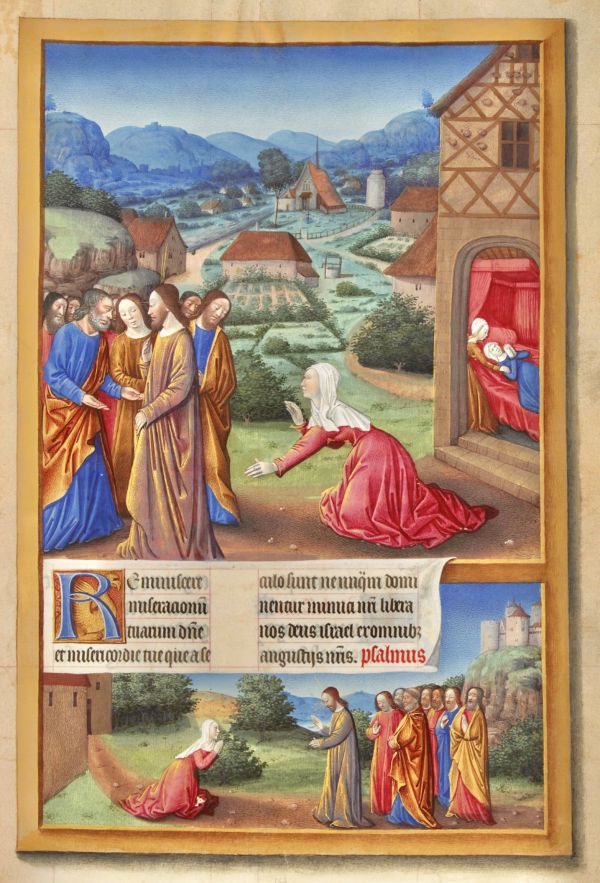Eucharistic crumbs
(Mk 7:24-30)
Religious law prevented dealing with foreign people and other ethnicities, borders, or culture.
At the beginning, Jesus [that is: He in the first communities, His Mystical Body] seems not to want to occupy Himself with it (v.27).
But after helping the crowds and his people to emancipate themselves from the prison of the norms of purity (vv. 14-23) the young Rabbi himself had emerged from the conformist ways of experiencing God.
He makes an Exodus even from national and race territories that at that time were seizing the vital sap of the souls - thus flying over the "sacred" preconceptions.
To make us grow in Faith, Christ promotes the most varied existence. In this way, outside the standard myopia, He can find astounding adherences.
Faith: New Principle, which does not alienate us from ourselves. And crumbles any illusion of exclusivity.
The singular initiatives of the Son are born on the basis of the all-personal experience of the divine, of a Father who bestows unconditionally.
Provident, and unequal from the stingy God of ancient religions: sovereign all discordant from creatures, alien, predatory, and (incomprehensibly) addicted to habit.
With an unusual stunt, the young Rabbi tries to open the Judaizing mentality, overcoming borders.
Even the dialogue with a woman not of his people was a "novelty" alien to the mentality of the time’s crowds. Initiative foreign even to the conceptions of the first two generations of believers; marked by a creed still blocked and mixed with idols.
But there was a whole people of strangers [the mestizo «Woman» and her spiritual ‘offspring’] who felt they had no future... and this called into question the many aprioriisms of the time.
In short, even the church of Mk had not fully grasped the meaning of the «bread of the sons» - all available, for it to be "recognized".
Because of rivalry, ancient peoples used to call foreigners with the contemptuous nickname of «dog»: synonymous with impudence, meanness and ignoble baseness.
The Lord's very harsh phrase (v.27) reflects a comparison coming from poor areas and from family life, where once there were plenty of pets and youth.
There was also a difference between ‘children’ generated by listening to the Word of God and those who adjusted themselves “by scent”. But although no one denied sustenance to the «sons» to give it to the «dogs» around them - the latter had at least the right of crumbs fallen on the ground.
For differents and far - even bad-considered - it’s not a problem to resort to Jesus in an instinctive way; indeed, even today they would be satisfied with the shatters.
[Unfortunately, not infrequently strangers and difforms are hungrier of the real Manna from Heaven].
Christian community should not lack the nourishment of the body and the food of wisdom for everyone (Mk 6:42-44).
Faith has no nationality, and it is the only immediate language and relationship valid for communication between God and woman and man.
Christ is a sapiential feeds for a free circulation; not a sign to be hindered and kept closed.
Breaking the Bread is to participate our existence at root; what we have and are. Metre of what we proclaim, believe and practice.
[Thursday 5th wk. in O.T. February 13, 2025]












